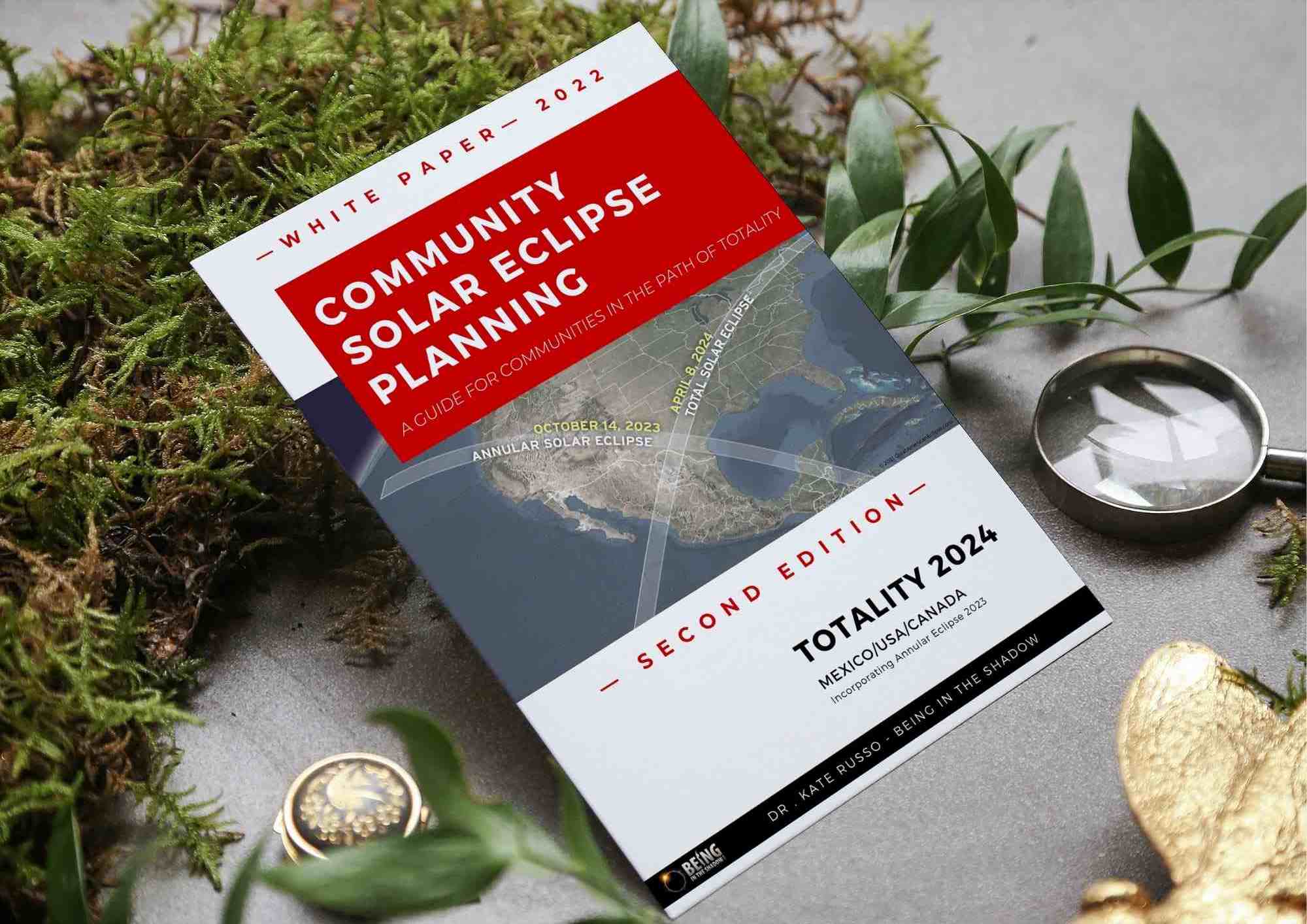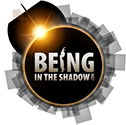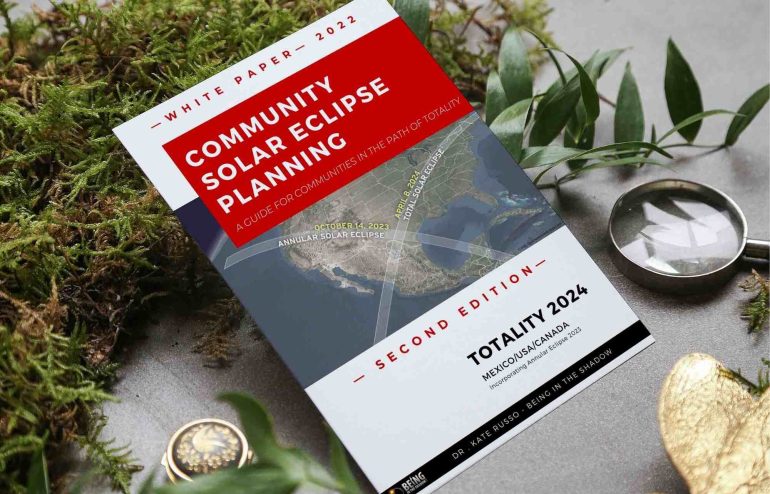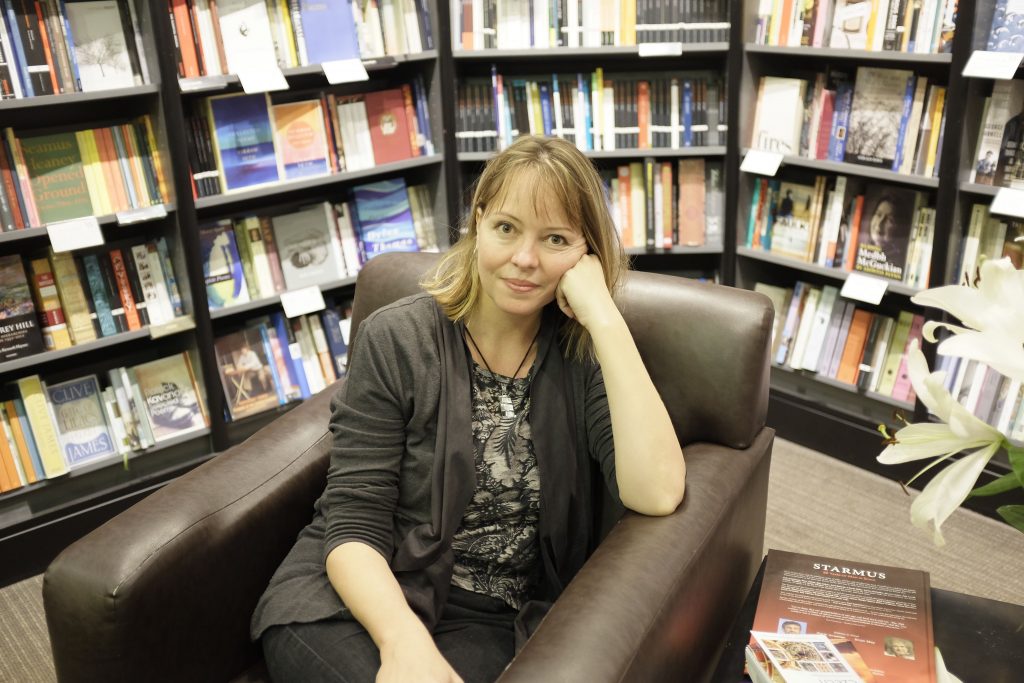
We are now almost two years out from the biggest event in North and Central America for 2024 – the next total solar eclipse. This eclipse will be even bigger than the 2017 eclipse — I know this is very hard to imagine. The path of totality is much wider crossing over higher-population areas, and with FOMO from 2017, it really will be the event of the decade.
This time, over 3,000 communities are located within the path of totality in the US alone. This equates to tens of thousands of people who will be directly involved with eclipse planning over the coming two years.
Planning for something as major as a total eclipse needs to happen across organizations, and with local/state/national coordination. The American Astronomical Society (AAS) Solar Eclipse Task Force is doing a great job at coordinating efforts, and I enjoy being part of this team of highly motivated people who are guiding the way in preparations for 2024. Our next virtual planning workshop is only a few weeks away and is timed to coincide with the two-year countdown (and you can register here).
Every community within the path of totality will initially struggle to get started with their planning. Usually, they wait for direction from above and then realize over time that only they can figure out the eclipse planning strategy for their own community.
This is exactly where my White Paper on Community Eclipse Planning comes in.
Having been involved in community eclipse planning for a decade, I see this gap time and time again and have made it my mission to support communities to develop their strategic approach to planning for the eclipse. No one will do it for you. **SPOILER ALERT** For maximum benefit, the eclipse should not be seen as a one-off event, but as a focal point for your community development plans.
The first White Paper on Community Eclipse Planning was released in 2015, with the purpose of helping communities across the path of totality in the US to prepare for the ‘Great American Eclipse’ in 2017. Since then, I have used the thousands of hours of my free zoom consultations, repeated sessions, in-community visits, post-eclipse sessions with coordinators and Mayors, to effectively capture the key lessons from those coordinating the eclipse planning efforts in their communities. I use an evidence-based approach and do this voluntarily in my own time, so it is a slow process.
And so, after years of work behind the scenes sorting through all this material, the 2nd Edition is now ready for distribution.
This document is more detailed and focused on developing a community-based eclipse strategy for maximum benefit. Like last time, this document is free and can be found at the bottom of this page on my website. The document is large, so it is best shared via a link to my webpage rather than as an attachment.
This 2nd edition will have multiple versions tailored for each specific eclipse, up to 2030. An earlier version for the 2023 total eclipse visible from Australia/Timor-Leste was circulated to those involved last year. The version now available to download from my website is suitable for those planning for the total solar eclipse of 2024 in the US, Mexico and Canada — while also including details of the 2023 annular eclipse.
I am no longer in a position to offer free individual consults to communities. However, I will be offering planning masterclasses for eclipse coordinators, where each month a maximum of six coordinators can come together and we will deep-dive into various topics. I will only be making announcements about these to those communities who complete the form on my website, and the first one will be in May.
Remember – no community volunteers to be within the path of totality; the Universe chooses YOU! Use this opportunity wisely.


